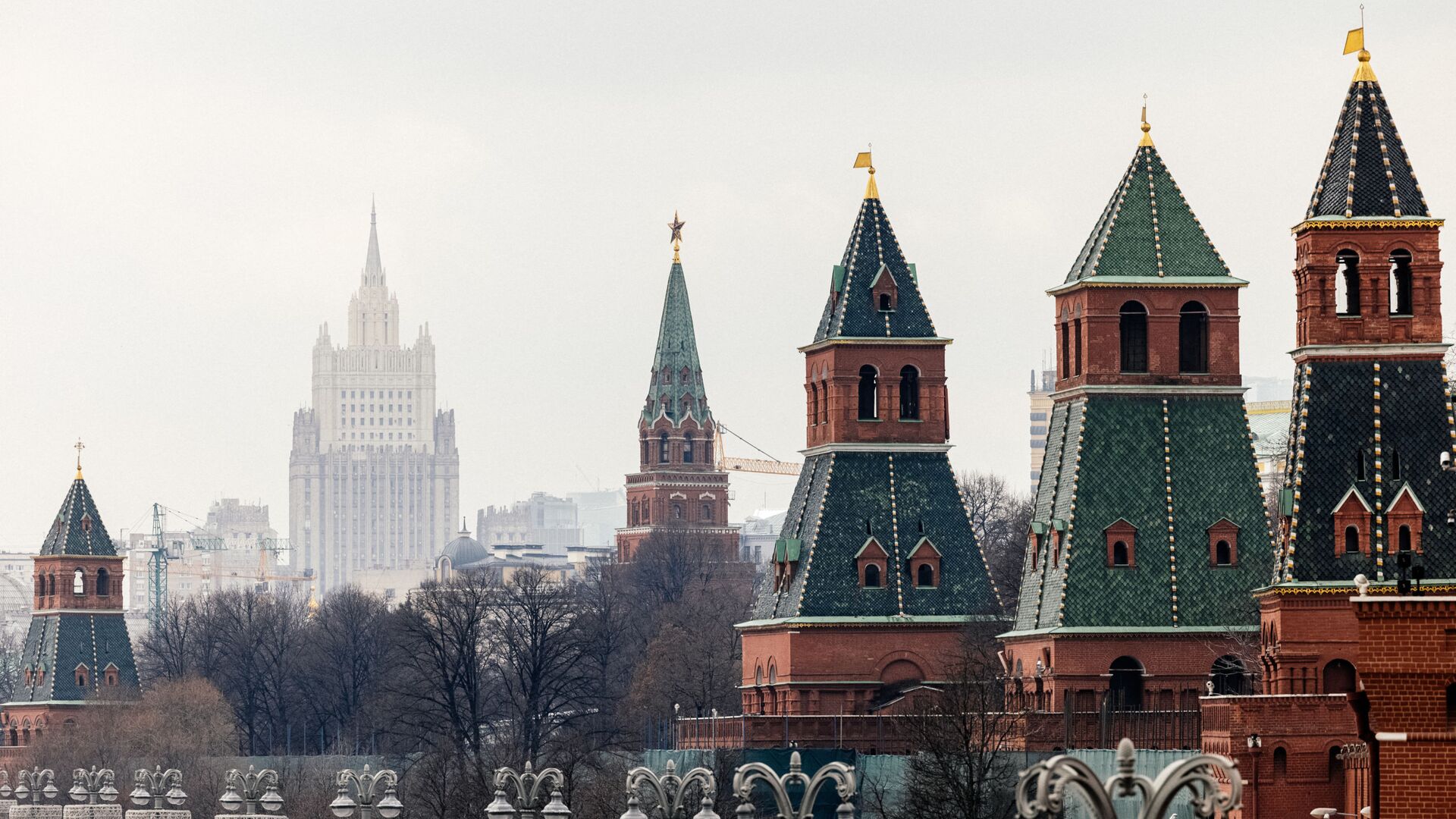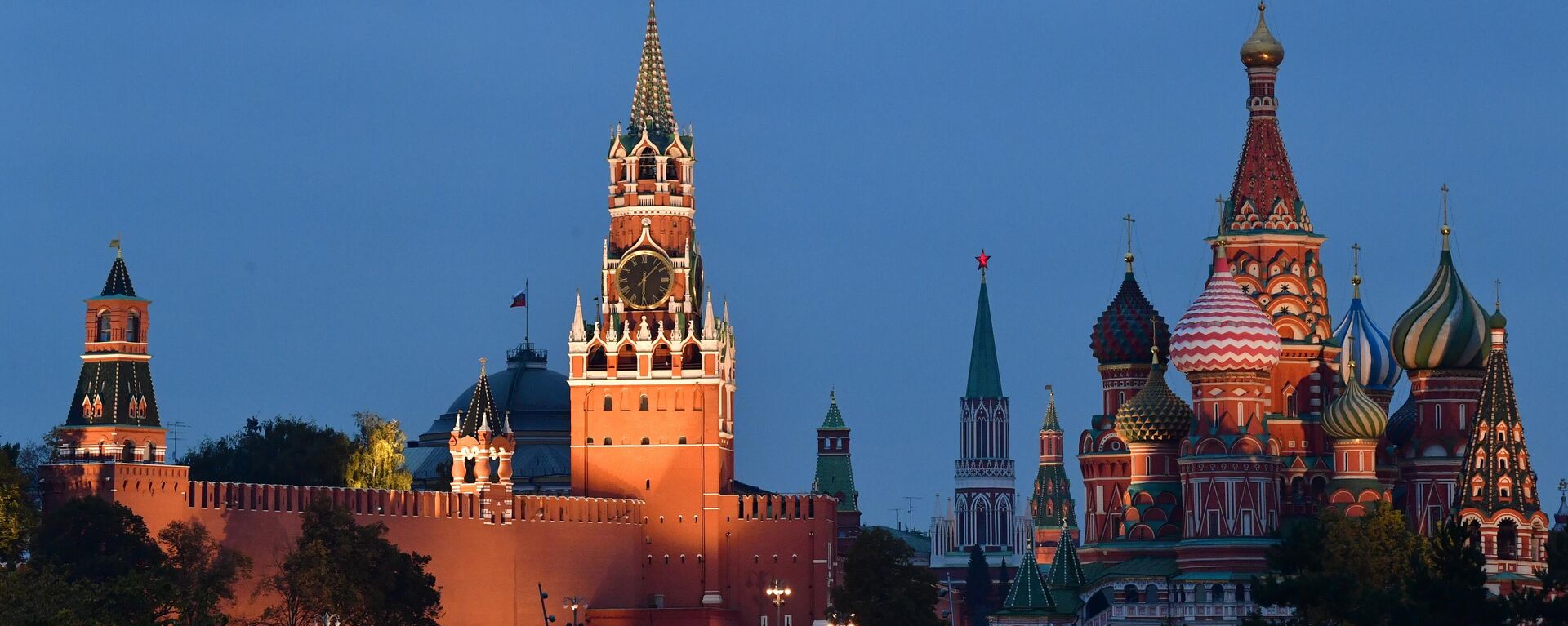Russia's New Foreign Policy Concept Marks Global South Renaissance & End of West-Centered Order

© AFP 2023 / DIMITAR DILKOFF
Subscribe
On March 31, the Kremlin issued an updated foreign policy doctrine which revises Russia's international role and sets a priority of facilitating the establishment of a multipolar and equitable system of international relations that would guarantee security and equal opportunities for the development for all states.
"Russia decided to adopt a new foreign policy concept because the external environment has fundamentally and drastically changed," Dmitry Suslov, deputy director of the Center for European and International Studies at Russia’s Higher School of Economics and deputy director of research at the Russian Council on Foreign and Defense Policy, told Sputnik.
"The world is rapidly heading towards multipolarity, whereas the United States is fighting back, trying to prevent the consolidation of the multipolar order. And as a part of its efforts to preserve its hegemony, the United States has launched a comprehensive hybrid war against Russia. This is emphasized directly in the foreign policy concept with the purpose of strategic defeat of Russia and weakening of Russia in all aspects. Moreover, the United States coerced the majority of its allies and satellites, the Anglo-Saxon countries and also many European countries, into this hybrid war against Russia," Suslov continued.
The document directly calls the US the main instigator of anti-Russian policies in the world and draws attention to Washington's consistent attempts to weaken Russia in every possible way.
"This was not the choice of the Russian Federation," the doctrine reads. "Russia does not consider itself to be an enemy of the West; is not isolating itself from the West and has no hostile intentions with regard to it."
Russia hopes that in future the West will take into account the complex realities of a multipolar world and resume pragmatic cooperation, as per the updated foreign policy concept.
At the same time the doctrine suggests using the military to fend off or prevent an armed attack on Russia and its allies. "Thus, we unequivocally declare that we will defend the right of the Russian people to [their] existence and free development," Russian Foreign Minister Sergey Lavrov stated, while commenting on the newly released document.
"The new foreign policy concept, I think, is very relevant to the existing geopolitical realities," noted Suslov. "It provides a very accurate analysis and observation of the current state of the world with the two major prominent tendencies, the world heading towards multipolarity, consolidation and creation of multipolar, political and economic orders (…) Based on this analysis, the Russian foreign policy has to be also bifurcated with, I would say, one priority being deepening cooperation and partnership with non-Western countries and strengthening economic and political partnership with China, India, Middle Eastern countries, African countries, Latin American countries is highlighted as priorities of Russian foreign policy; and on the other hand, struggling against the West."
The new doctrine is also striving to eliminate the vestiges of domination by the US and other unfriendly states in global affairs and create conditions to enable any state to renounce neo-colonial or hegemonic ambitions.
"I think that behind this is, as we see, the completely new financial order and new security order in the world," Professor Stevan Gajic, a research associate at the Institute of European Studies in Belgrade, told Sputnik. "Things that were unimaginable are happening. The dollar is evaporating as a world currency, as the only currency for buying oil and and gas. The Middle East is completely changing. Also, the countries of ASEAN, Myanmar, Philippines, Singapore, Thailand and Vietnam, are talking about getting rid of dollar, euro, pounds and Japanese yen for international transactions and actually start transacting in local currencies. These changes are immense. They are huge. And of course what is stated is already happening. The United States' power is being challenged all over the world."
Thus, Russia’s new foreign policy concept marks the revolutionary changes in global affairs, according to Sputnik's interlocutors. After centuries of colonialism and great power struggle, the Great Eurasia and the Global South are emerging as sovereign and independent players, as per the Serbian professor. Furthermore, Russia's new foreign policy doctrine seals the nation's intention to "contribute to the further evolution of Africa as an original and influential center of world development" and to ensure "sovereign equality of states, respect for their right to choose models of development, and social, political and economic order."
"Countries like India, China, Russia, Iran, and Iraq have constantly been in some kind of a power struggle. What the countries of the great Eurasian continent realized is that they should cooperate and get rid of the mediator that was constantly actually provoking them and causing trouble," Stevan Gajic noted referring to the UK's "Great Game" in Eurasia followed by the US/NATO invasions. "That is exactly what is happening. And this is why I believe that these changes are significant and that the new foreign policy is needed so that Russia and Russian diplomats have the, let's say, blueprint for conducting their business in the future."






